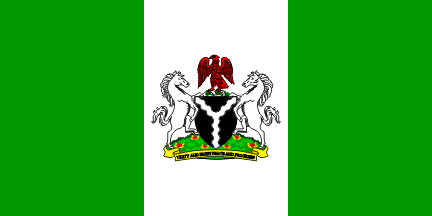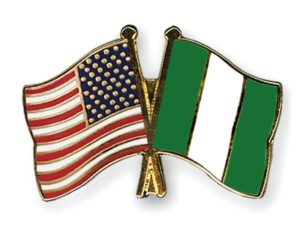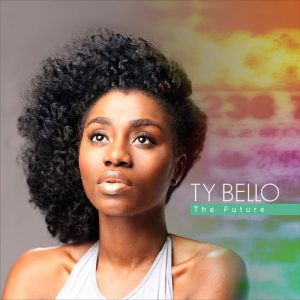The Nigerian national symbols are fundamental features of the Nigerian national identity with profound emotional and socio-cultural connections to the sub-consciousness of Nigerians eliciting a sense of belonging, love, trust and unity. In Nigeria, these symbols and their importance are taught from the earliest stage of learning at immediate environments and schools as well as to be accorded with great respect.
The Nigerian national symbols embody the collective history, heritage and values of the Nigerian state and largely include the following:
- The National Anthem and Pledge of Nigeria
Composed and adopted in 1978, this is the country’s national song with a nationalistic call for patriotism, love, hardwork, peace, unity, freedom, truth and justice.
The national pledge is recited immediately after the national anthem as a promise, vow or commitment of loyalthy, honesty, service and unity to the country.
- The National Flag of Nigeria
The national flag symbolizes in peace, the collective national wealth/prosperity of Nigeria.
- The Coat of Arms of Nigeria
The Coat of Arms of Nigeria represents the rich natural diversity and historical splendour of Nigeria.
These are common symbols; and there exist more of them such as the Nigerian currency (Naira and Kobo), the seat of the Presidency, etc.
Therefore, the Nigerian national symbols express strong and specific national ideas and serve as representations of Nigerians at home and abroad, their values, aims, or history, without which no nation can be strong.

After independence, Nigeria will largely be judged by the quality of the representation overseas, its diplomatic service. It is very easy to say that Nigeria should only be represented by the best; it is rather more difficult to define what the best is. In determining the qualifications for the new service, government has these considerations in mind: first, the candidate should be well educated; second, he must be or should be trained to be a civil servant divorced from politics, and third, he must acquire proficiency in languages.
– Prime Minister, Sir Abubakar Tafawa Balewa (27 February, 1958)
As stated in the article Appointing Nigerian Ambassadors (2016), Nigerian ambassadors are official envoys, the highest ranking diplomats who represent the country and are usually accredited to another sovereign country/state, or to an international organization as resident representatives of the government or sovereign or appointed for a special and often temporary diplomatic assignment.
Furthermore, the crucial image and responsibility bestowed on Nigerian ambassadors was succinctly described by Nigeria’s current Minister of Foreign Affairs, Mr. Geoffrey Onyeama; “In understanding the role, functions and procedures of appointing ambassadors, an ambassador is an extension of the President in a country,.. and who the President believes will best represent him…”
Indeed, such an honour, privilege and enormous responsibility!
An honour that requires knowledge and understanding of the Nigerian national identity of which the Nigerian national symbols are the cornerstones.
Last year (2016) however saw a recurring incident in which ambassadorial nominees screened before the Senate Committee on Foreign Affairs as presented by President Muhammadu Buhari were unable to confidently display their knowledge of the Nigerian national symbols notably the national anthem and pledge and in most instances required the intervention or assistance of the panelists. This national blunders goes beyond the debate of appointing career and non-career diplomats as ambassadors, which could be attributed to genuine ignorance, panic/fear of the occasion, lack of self-confidence, lack of a true patriotic spirit, unpreparedness, etc.
Significantly, such dramas questions the quality of Nigeria’s representation overseas; the knowledge and patriotism of its accredited foreign representatives; the state of our education considering that from the cradle we are taught and exposed to the national symbols; the standard measurement of treatment between when a Primary 5 student fails to recite the anthem or pledge and when a nominated ambassador does same; institutional effectiveness considering if all Nigerians not just foreigners display basic knowledge of the Nigerian national symbols before obtaining the Nigerian passport; as well as a lot of other questions.
Nigerian National Symbols & Ambassadors: Your Opinion!
Therefore, from your experiences, insights, observations and understanding of the importance of the Nigerian national symbols, do you believe that it is mandatory for nominated and accredited Nigerian diplomats and ambassadors to know and understand the Nigerian national symbols?
*This piece was first researched and written by Toju Micheal Ogbe on the 7th of January, 2017 and was last modified on the 19th of August, 2019 by Toju Micheal Ogbe.

